- Home
- Heather Graham
The Viking's Woman Page 6
The Viking's Woman Read online
Page 6
“Don’t go,” he had warned him.
“Mergwin, I must. I have promised my uncle.”
“You are in peril. And I cannot warn you from where, or from what. Your heart, your soul, and your life are in grave peril.”
He remembered feeling a grave affection for his old tutor that day, and he had set his arm around the Druid’s scrawny shoulders. “I am a prince of Eire, Mergwin. I do not recant my word and, as my father before me, I must live in danger.”
Mergwin had argued no further.
And he had gone, and he had met Emenia, and his heart and soul had indeed been in peril. In his dreams he saw her beauty. He saw the supple, naked beauty of her flesh, her smile as she straddled over him. He felt anew the silken brush of her hair over his shoulders, sleek as midnight, shining. She knew where to touch a man, as if she were inside him, as if she knew just what he needed when and where and how. He saw the honey of her body, shimmering with a glaze of sweat from the sweet tempest between them, the shape of her breasts, the darkness of her nipples. He could see the scent of her.
He had slain so many men that night. Sent them to rest with their Allah, sent them to heaven, Valhalla, or hell, he knew not which. But no amount of death and no spillage of blood could have stilled the pain that assaulted him and became one with him, one with living. It would not end. It would not cease to enter into him; would not cease to plague his dreams.
He groaned again. His leg pained him, and that pain seared into his subconscious. Mergwin—the old Druid—with his haggard, lean, eternally wrinkled face—was haunting his dreams again. Eric smiled ruefully. “Begone, Druid! Leave my dreams to peace!”
“You’re not dreaming,” Eric heard. He blinked and shook his head, but the face remained. Eric jerked up. Dizziness swept through him and he almost fell back. He fought the sensation and the room slowly ceased to spin.
The Druid was indeed before him.
Eric scowled fiercely. “You old bat from hell! What in Odin’s name are you doing here?”
Mergwin sat by his side on the bed. Eric winced, gritted his teeth, and realized that the Druid was treating the arrow wound in his thigh. “Christ’s blood, but that hurts!” Eric swore.
The Druid shook his head sorrowfully. “Eric, you have spoken of Christ and Odin and hell, and all within but a few breaths. Decide upon your gods, Young Wolf, and pray to them properly, if you would.”
“How did you come here?” Eric demanded.
Mergwin tied the poultice in place with a linen bandage. Eric was startled to feel the pain lessen almost instantly, as if there were truly magic in the old man’s touch. The Druid observed him pensively without answering.
“I spoke to you!” Eric reminded him.
He had his father’s temper, this one, Mergwin thought. Nay, more. Of all the brood of the Wolf and his princess, this one was truly the most like the sire. He possessed his own code of honor, and none could break it. But he would be demanding of all those who crossed him in life, just as he would be ruthless when brought to battle, any battle. He was as tall as his father and as golden a warrior, broader in the shoulders, heavily muscled, and still trim and lithe and agile. He could walk silently on leaves—Mergwin had seen to that himself—and yet he walked in power. He asked of his men no more than he gave. He dealt honestly, and men were quick to follow him. His justice was swift, and though his sword could be merciless, his judgment was ever fair and wise. His fault, Mergwin thought grimly, was a stubborn streak that ran wide and strong.
“I cast your runes,” Mergwin said at last.
Eric’s blond brow shot upward. “You cast my runes?” he repeated. Like himself, Mergwin had been born of an Irish mother—a witch, so many said—and a Norse rune master. The runes were symbolic stones; they could foretell the future—if a man believed in their power. Many of his men would not sail if the cast of the runes did not prophesy a good voyage.
“I sought to find you ere you sailed,” Mergwin said. He checked the leg he had administered to so carefully. “Your ships had gone, and still I followed as swiftly as I could.”
“Why?”
The Druid stood. He stretched out his arms, indicating the manor and the land around them. “This! This is some treachery.”
Eric scowled and tossed his blankets aside, determined to rise.
“You should lie still. You will bleed again,” Mergwin warned him.
“I cannot lie still.” Eric walked for the bowl and pitcher of water that awaited him on a side table. His leg blazed, but he did not let the Druid see his pain. He ducked his face into the water and the coldness of it awoke him.
“It might have cured more easily,” the Druid told him caustically, “had you allowed the shaft to be properly removed. But nay, the prince of fools must rip muscle and skin to rid himself quickly of the missile!”
Eric cast Mergwin a scowl and dried his face on a linen towel. “You have tended to my leg, and your warning of treachery is too late. Perhaps, Druid, you could sail back across the sea whence you came and plague my brother, who surely needs assistance with some project.”
Mergwin ignored him and pulled a wooden chair before the low-burning fire. The flames reflected on the incredible length of his beard, a beard that never tangled but rather seemed part of the steel-gray hair that flowed from his head and down his back. Eric, in turn, ignored Mergwin and went to the bedroom door, throwing it open. He was on the second floor of the wooden manor house, and where he had lain had surely been the lord’s room once, for the beautiful bed where he had slept was raised high on a pedestal, and the mattress upon it had been filled with down. Then there were the chairs; the beautifully, elaborately carved fireplace; the mantel, majestically adorned with both saints and gargoyles. Tapestries warmed the walls, and the pitcher and basin on top of the table were finely crafted, the handle of the latter set with jewels.
Aye, the room had belonged to the lord of the place—shared with his lady, perhaps. Or possibly it had belonged to the wicked little minx who had cast him into his present sorry state.
“Rollo!” he called, but even as he called, he saw the young dark-haired girl whom he had rescued from the overeager advances of his men the afternoon before. She was cleaned and neat; her dark hair was tied back in a knot; her tunic was long and demure; and her face, with its wide, adoring eyes, was scrubbed and fresh.
She curtsied to him quickly. “My lord, I’ve been awaiting your pleasure.” She presented him with a tray. The aroma was enticing. The plate was filled with a roasted fowl, fresh bread, and a pitcher of ale. He stared at her and nodded. “Tell me, what is your name?”
“Judith, my lord.”
“Judith, have you lived here always?”
“Always, my lord.”
“Tell me, where is your master? Was he killed in the fray yesterday? Why would he seek to attack me? Do you know?”
The girl shook her head, confused. “There is no master here, not since Prince Garth died many years ago.”
“No master?” Eric said.
Mergwin, his back toward Eric, his face toward the fire, spoke up. “Ask her of her mistress, my prince.”
“The Lady Rhiannon,” the girl said.
“Ah, the Lady Rhiannon,” Eric repeated. “A slender nymph with golden-red hair that falls well past her hip?” And with a wicked ability to send arrows flying, he added silently.
“Aye, that’s my lady.”
How dearly he would love to have his hands upon her again. He smiled casually. “Well, then, what of the Lady Rhiannon? Why did she seek to attack me? I came here at the invitation of the king.”
The girl shook her head. “You came in a dragon prow, milord. You came in a dragon prow.”
“Yes, we build dragon prows; they are fine ships,” he said. “But still I should have been welcomed here, unless there has been some treachery against me or the king.”
The girl shook her head. “I know nothing of it!”
He eyed her carefully. She was a pretty th
ing but a mere serving girl. She could not help him.
“Thank you, Judith,” he told her, dismissing her.
She colored greatly, offered him another little curtsy, and lowered her lashes. “May I serve you in any other way?”
“Aye. Find Rollo for me—the big redheaded man. Send him to me.”
She bowed to him again. “He has been waiting for you ….” The girl paused.
Eric frowned. “Go on, girl, send him to me.”
She fell before him, kissing his hand quickly, then she was up and scampering away. Eric stared after her, then shook his head and came back into the room. He sat down at the table and discovered that he was ravenous. He bit heartily into the fowl and found it very palatable. He stared over at Mergwin, who was watching the flame. “So tell me, Mergwin, you who knew of this danger, what was the cause of this wasteful bloodshed?”
Mergwin shrugged, then stared very intently into the flames. “I cannot tell you the cause. I am not a seer.”
“Oh, you’re not,” Eric said dryly. He lifted the ale to his lips. He was very thirsty and downed it quickly. There was a knock at his door. He called out and Rollo entered. He was anxious and dragged a lean priest before him, pressing the nervous man toward Eric.
Eric arched a brow at Rollo. “What is this?” he asked in Norse.
“Speak up, Father, and quickly,” Rollo urged the monk.
The little man wet his lips, and his eyes seem to grow wider as he stared at the blond giant seated before him. He was clad only in a short leather tunic; his shoulders were bare, the muscles of his arms massive and sleek and taut. Eric rose, towering above the monk. The priest crossed himself, then tried to step forward; he stammered out some words. Eric crossed his arms over his chest, annoyed and amused. “Come, good father, speak up. We are not barbarians here.”
The monk seemed to doubt those words sincerely, but he found his tongue. “I am Father Paul, of the old order of Saint Bede. I have come from the king, Alfred of Wessex.”
“Have you?” Eric said sharply. He tensed. The feeling of betrayal scratched along his spine.
“Please, dear Prince! The king is distressed and knows no more of this treachery than you, but he swears that he will discover it. He has sent you mead and wool and furs and jewels created by his finest goldsmiths and silversmiths.”
“The king would give me what he fears I might take,” Eric said.
The monk drew himself up with impressive dignity. “Alfred is a great king. He is a man of his word and afraid of no fight.”
“Well said,” Eric murmured.
“And true,” Mergwin added quietly. The monk stared at the Druid’s back with some fascination. Eric walked over and leaned against the mantel. Mergwin’s poultice was at work on his leg, and he felt as if new strength and vigor had worked themselves into his limbs. He rubbed his bearded chin with his fingers, eyeing the monk, who continued to seem fascinated with Mergwin’s back.
“What does the king wish?”
“He would—uh—er, that is, the king would meet with you here. He awaits you beyond in the wood and would take a hostage first, for he expects your anger.”
“I’ll give no hostage,” Eric began, but Mergwin, tall and lean and ever like the crow, stood. “Aye, my prince. I will go, as the English king bids.”
Eric frowned. The Druid was oft a thorn in his side, but he was also as dear as any blood relative, and Eric was loath to risk the man. “Nay, you should not.”
“And why not?”
“You are too old for this game.”
“When I am too old, I will die.” Mergwin bowed low and respectfully to Eric, then he turned to the monk and smiled at the gaping man. “Shall we go?”
The monk stared at Eric. Rollo laughed. “He is no black magician, Father. Merely my lord’s hermit. Mergwin will not turn you into a blackbird.” He paused and gazed at Mergwin. “Will you, Druid?”
Mergwin shrugged. “Nay, not this day.”
“I don’t know if a madman will suffice—”
Eric cut him off. “Tell your king that he holds someone precious, my mentor, a man who is oft my strength, in his hands. Tell him that he holds a treasure, and if there is treachery now, all England will pay. Then you may tell him that I await his leisure. We will talk in this fine hall.”
The men left him, the monk more nervous than when he had come, Mergwin stoic. Rollo awaited their departure and left himself, amused. When they had gone, Eric finished his meal, then he set to dress. Sometime during the night Rollo had brought his trunk, and he determined that since he would meet a king, he would dress as the son of one and the grandson of two. He chose Irish dress, warm woolen hose, a soft blue fur-trimmed tunic, and a belt that buckled with a finely crafted Celtic cross. At his shoulder he held his regal crimson mantle in place with the crest of his father’s house, the wolf and the crown.
When he was done, he glanced around the room. Rollo would have had him brought to the best in the manor, so if it was not the lord’s room, then it was the lady’s. Curious, he went to the trunk at the foot of the bed and opened it. The trunk was filled with women’s wear, long tunics in fine materials trimmed with fur and with jewelry.
So the Lady Rhiannon had ruled here. This had been her room. He had cast her from her place, or so it seemed. Tension filled him, tightening his jaw, constricting his muscles. There had been treachery here, and this Rhiannon had surely been the cause of it. It was her land, so said her servant. She had been the one to order the battle and to see it to its bloody end.
She had sent her rain of arrows descending upon him. She had struck him. She had heartily desired to slay him. “Witch!” he muttered, and that she was, with her silvery-blue eyes, her hair of pure fire, and her sizzling hatred. He picked up a jeweled dagger, pondering all that had happened. Perhaps he should have thrown his knife at her heart. If the treachery had been hers, it had cost many, many lives. And if she had the chance again, Eric thought, she would gladly slay him. She had come closer than any man to ending his life. She was no gentle, demure lass. She had fought like a vixen and cut him; she knew where to aim against a man.
“Well, my proud one,” he muttered aloud, turning her jeweled dagger over in his hands, “you will pay in part, for you will give up this land and these clothes and all that I hold. You will never regain them—that I swear. Perhaps you will learn humility. If ever I am given the chance, lady, I will see that you learn it well.” He still could not forget the rage she had instilled in him. Nor in honesty could he forget the woman herself. Even shimmering with the passion of her hatred, her eyes were beautiful, with their ambient gray-blue irises and thick fringe of dark lashes. She did not elicit his tenderness but had touched a haunting cord of desire within him. He smiled. ’Twas a pity she was a lady born. To be given to a man she deemed a Viking, as his concubine, surely would be a difficult cross for her to bear.
He cast the dagger back into the trunk and closed it. No woman, no matter how beautiful, was worth as much to him as the land. And though the taste of revenge lay sweet within his mouth, he wanted this piece of earth and the surrounding coves with a passion. If the king was not behind this, Eric would demand the land of him in retribution. As a Christian prince, he couldn’t demand a lady as a passing diversion, a concubine.
He came downstairs, where certain of his men sat around the great fire. Mastiffs roamed the great hall now, and it seemed that the serfs were back at their work. The blessing of being a slave! Eric thought wryly. For if a master was a decent one, a serf did not change his or her position much in life—no matter who triumphed, no matter who ruled.
Hadraic, Rollo, and Michael of Armagh ringed the fire, drinking ale. Hadraic was the son of one of his father’s men and an Irish maid. Rollo was a Norseman through and through, and Michael was as Irish as Queen Erin. Watching them, Eric thought that his father’s alliance with his grandfather had been a good one. They had learned friendship and had prospered. These three men were important to him. They fough
t together, cared greatly for one another, and were fiercely loyal.
Yet, like him, they were seeking … something. Conquest, perhaps, of their own.
Rollo gazed up at Eric as he came down the stairs. “We’ve ordered a feast prepared for the King of Wessex. He has sent us a young noble of East Anglia as hostage, and we have now sent an escort to meet with his party. I was thinking that we should now ride out and meet the King of Wessex at the gates.”
“Fine, we shall ride.” Eric came before the fire and warmed his hands. Then he gazed sharply at Hadraic. “Have we taken any prisoners during the night?”
“Nay, Eric. We’ve taken the men at the battle’s end, and the women, but none is of the manor. We’ve got farmers, serfs, and craftsmen. They have all taken their oath to you.”
Eric nodded. “Good.” There would have to be a renegotiation with the English king, but he would not relinquish this place.
Still, he wished that he had the girl. He would like to take her bow and arrows and crack them over her backside.
Or perhaps she needed a few nights in solitude with nothing but bread and water ….
He stepped away from the fire and looked at his three men. “Shall we go?”
Michael, Hadraic, and Rollo nodded. Eric led the way out into the courtyard. It was another day already, he saw. Pigs and chickens were moving around; farther out he could see a boy urging his oxen forward. His own men were up and about. Some leaned against the barn and whittled, as was the Scandinavian way. Some were wary, their hands on their weapons, their gazes ever sharp.
Denis of Cork came forward at the sight of Eric, leading a massive white stallion. He grinned from ear to ear. “He’s a beauty, my lord Eric! Finely bred, finely built, fast and strong. I was pleased when I saw him here, and I knew he could go to none but you.”

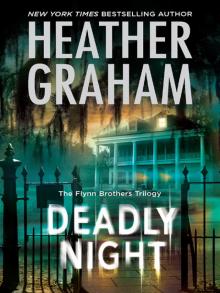 Deadly Night
Deadly Night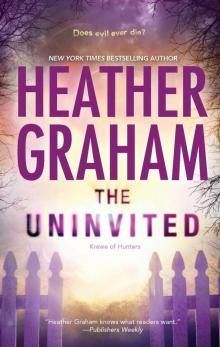 The Uninvited
The Uninvited Dust to Dust
Dust to Dust Heart of Evil
Heart of Evil A Perfect Obsession
A Perfect Obsession The Keepers
The Keepers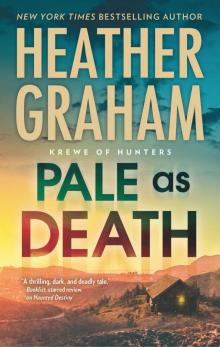 Pale as Death
Pale as Death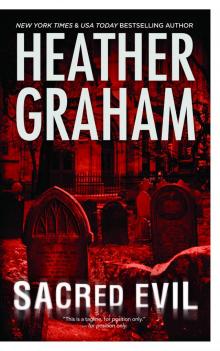 Phantom Evil
Phantom Evil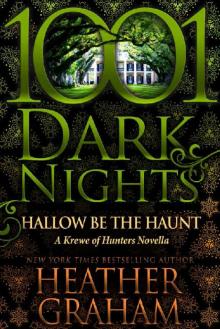 Hallow Be the Haunt
Hallow Be the Haunt Night of the Wolves
Night of the Wolves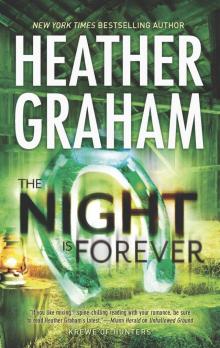 The Night Is Forever
The Night Is Forever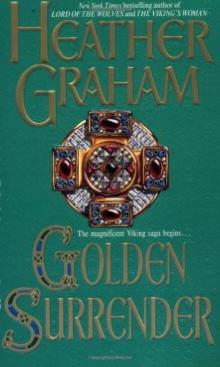 Golden Surrender
Golden Surrender Kiss of Darkness
Kiss of Darkness Beneath a Blood Red Moon
Beneath a Blood Red Moon A Dangerous Game
A Dangerous Game Ghost Shadow
Ghost Shadow Long, Lean, and Lethal
Long, Lean, and Lethal Fade to Black
Fade to Black The Rising
The Rising And One Wore Gray
And One Wore Gray Rebel
Rebel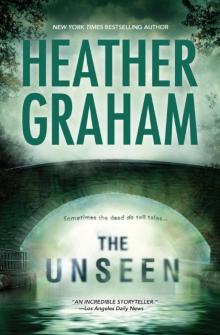 The Unseen
The Unseen The Night Is Watching
The Night Is Watching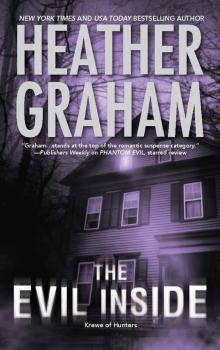 The Evil Inside
The Evil Inside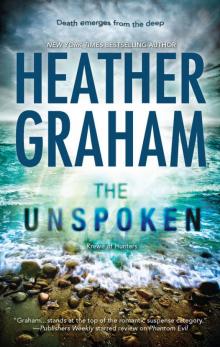 The Unspoken
The Unspoken The Night Is Alive
The Night Is Alive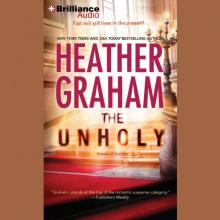 The Unholy
The Unholy Nightwalker
Nightwalker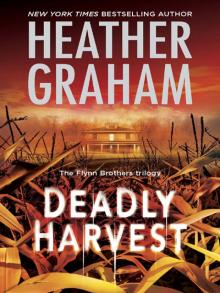 Deadly Harvest
Deadly Harvest An Angel for Christmas
An Angel for Christmas A Pirate's Pleasure
A Pirate's Pleasure American Drifter
American Drifter Realm of Shadows
Realm of Shadows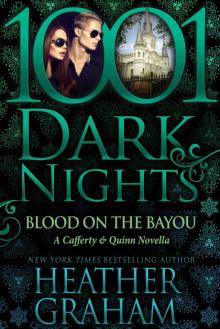 Blood on the Bayou
Blood on the Bayou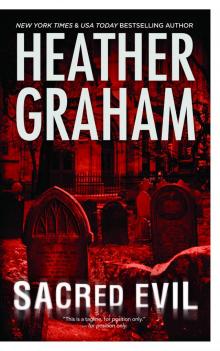 Sacred Evil
Sacred Evil Dying to Have Her
Dying to Have Her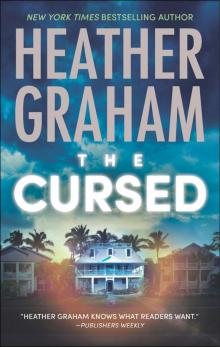 The Cursed
The Cursed Captive
Captive Hurricane Bay
Hurricane Bay Drop Dead Gorgeous
Drop Dead Gorgeous Ghost Memories
Ghost Memories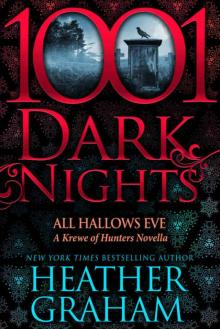 All Hallows Eve
All Hallows Eve Dying Breath
Dying Breath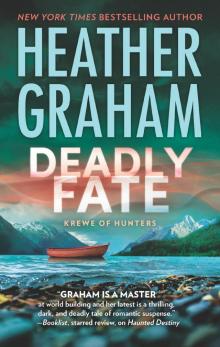 Deadly Fate
Deadly Fate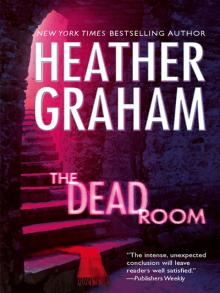 The Dead Room
The Dead Room Lord of the Wolves
Lord of the Wolves Ghost Night
Ghost Night Ghost Walk
Ghost Walk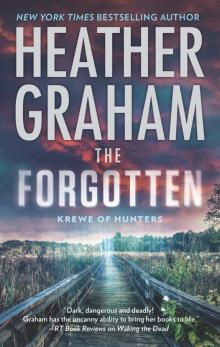 The Forgotten
The Forgotten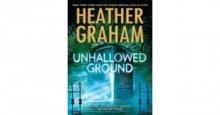 Unhallowed Ground
Unhallowed Ground One Wore Blue
One Wore Blue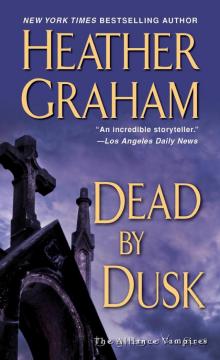 Dead By Dusk
Dead By Dusk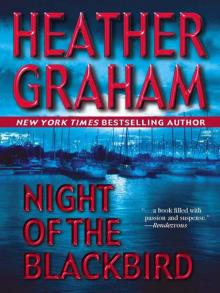 Night of the Blackbird
Night of the Blackbird The Dead Play On
The Dead Play On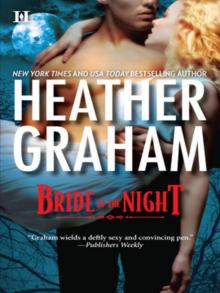 Bride of the Night
Bride of the Night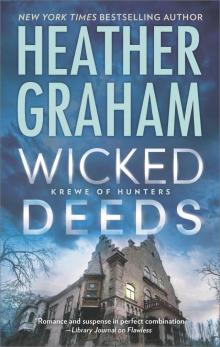 Wicked Deeds
Wicked Deeds The Forbidden
The Forbidden Triumph
Triumph Out of the Darkness
Out of the Darkness Love Not a Rebel
Love Not a Rebel The Last Noel
The Last Noel Tall, Dark, and Deadly
Tall, Dark, and Deadly The Death Dealer
The Death Dealer Dead on the Dance Floor
Dead on the Dance Floor Law and Disorder
Law and Disorder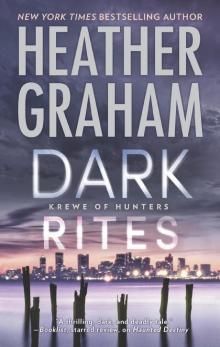 Dark Rites
Dark Rites New Year's Eve
New Year's Eve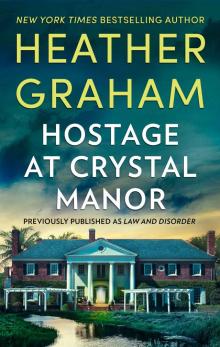 Hostage At Crystal Manor
Hostage At Crystal Manor And One Rode West
And One Rode West Home in Time for Christmas
Home in Time for Christmas Killing Kelly
Killing Kelly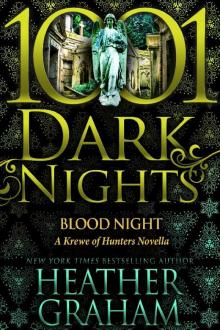 Blood Night
Blood Night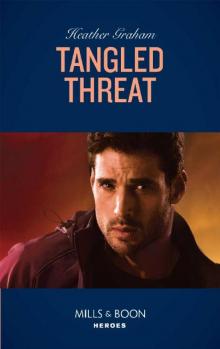 Tangled Threat (Mills & Boon Heroes)
Tangled Threat (Mills & Boon Heroes)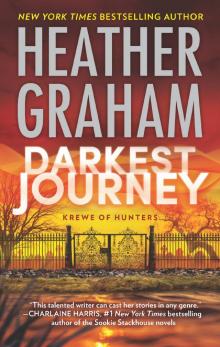 Darkest Journey
Darkest Journey Glory
Glory Deadly Touch
Deadly Touch An Unexpected Guest
An Unexpected Guest Night of the Vampires
Night of the Vampires Seize the Wind
Seize the Wind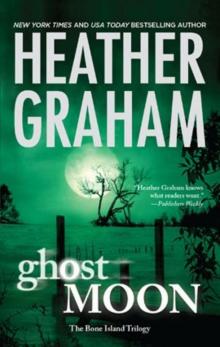 Ghost Moon
Ghost Moon The Vision
The Vision Dreaming Death
Dreaming Death Conspiracy to Murder
Conspiracy to Murder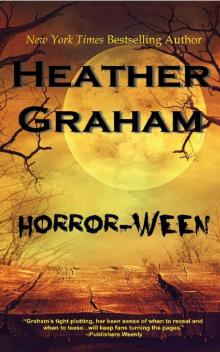 Horror-Ween (Krewe of Hunters)
Horror-Ween (Krewe of Hunters)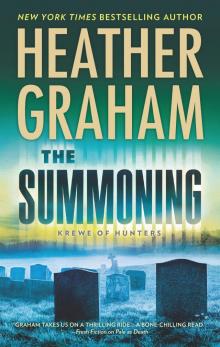 The Summoning
The Summoning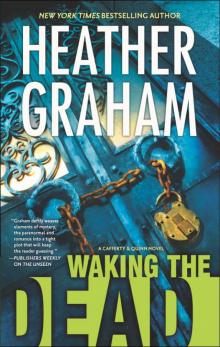 Waking the Dead
Waking the Dead Danger in Numbers
Danger in Numbers The Hidden
The Hidden Sweet Savage Eden
Sweet Savage Eden Tangled Threat ; Suspicious
Tangled Threat ; Suspicious Mother's Day, the Krewe, and a Really Big Dog
Mother's Day, the Krewe, and a Really Big Dog Picture Me Dead
Picture Me Dead The Killing Edge
The Killing Edge St. Patrick's Day
St. Patrick's Day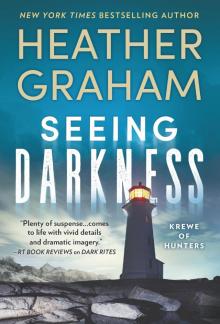 Seeing Darkness
Seeing Darkness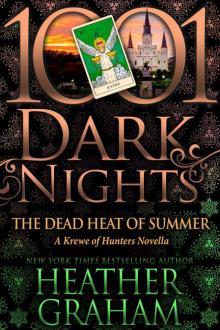 The Dead Heat of Summer: A Krewe of Hunters Novella
The Dead Heat of Summer: A Krewe of Hunters Novella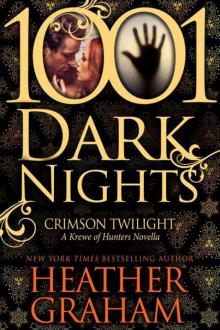 Crimson Twilight
Crimson Twilight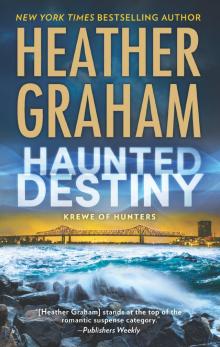 Haunted Destiny
Haunted Destiny Devil's Mistress
Devil's Mistress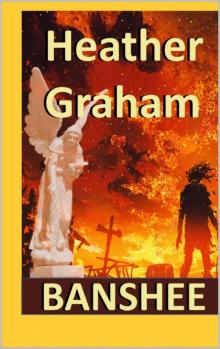 Banshee
Banshee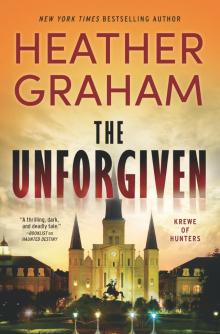 The Unforgiven
The Unforgiven The Final Deception
The Final Deception A Horribly Haunted Halloween
A Horribly Haunted Halloween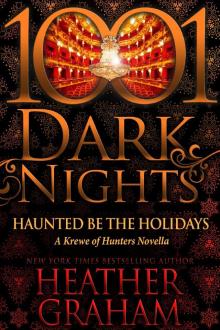 Haunted Be the Holidays
Haunted Be the Holidays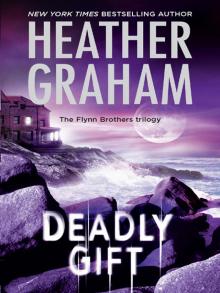 Deadly Gift
Deadly Gift Easter, the Krewe and Another Large White Rabbit
Easter, the Krewe and Another Large White Rabbit Haunted
Haunted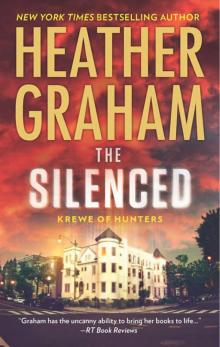 The Silenced
The Silenced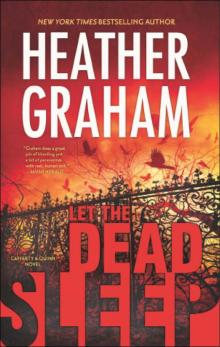 Let the Dead Sleep
Let the Dead Sleep Christmas, the Krewe, and Kenneth
Christmas, the Krewe, and Kenneth Big Easy Evil
Big Easy Evil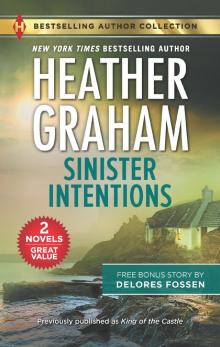 Sinister Intentions & Confiscated Conception
Sinister Intentions & Confiscated Conception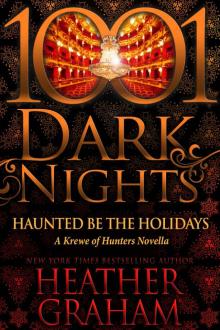 Haunted Be the Holidays: A Krewe of Hunters Novella
Haunted Be the Holidays: A Krewe of Hunters Novella Blood Red
Blood Red A Perilous Eden
A Perilous Eden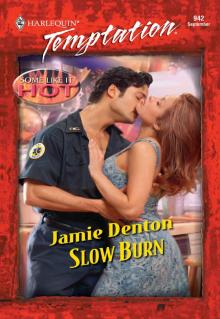 Slow Burn
Slow Burn Strangers In Paradise
Strangers In Paradise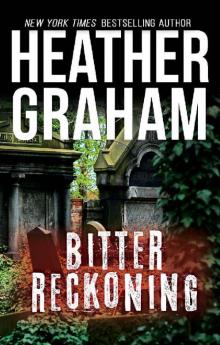 Bitter Reckoning
Bitter Reckoning Krewe of Hunters, Volume 1: Phantom Evil ; Heart of Evil ; Sacred Evil ; The Evil Inside
Krewe of Hunters, Volume 1: Phantom Evil ; Heart of Evil ; Sacred Evil ; The Evil Inside Do You Fear What I Fear?
Do You Fear What I Fear? The Face in the Window
The Face in the Window Krewe of Hunters, Volume 3: The Night Is WatchingThe Night Is AliveThe Night Is Forever
Krewe of Hunters, Volume 3: The Night Is WatchingThe Night Is AliveThe Night Is Forever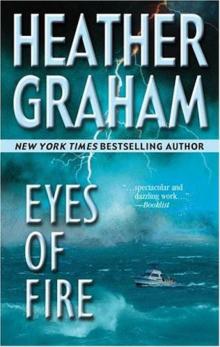 Eyes of Fire
Eyes of Fire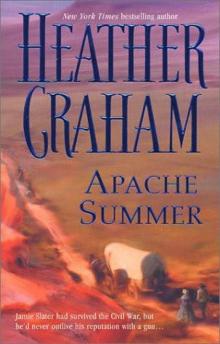 Apache Summer sb-3
Apache Summer sb-3 Sensuous Angel
Sensuous Angel In the Dark
In the Dark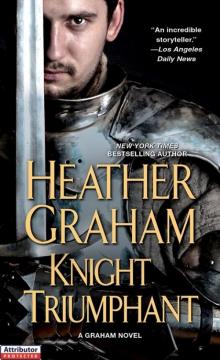 Knight Triumphant
Knight Triumphant Hours to Cherish
Hours to Cherish Tender Deception
Tender Deception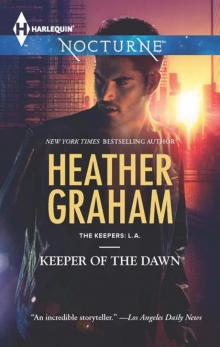 Keeper of the Dawn tkl-4
Keeper of the Dawn tkl-4 Apache Summer
Apache Summer Between Roc and a Hard Place
Between Roc and a Hard Place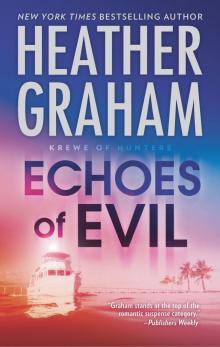 Echoes of Evil
Echoes of Evil The Game of Love
The Game of Love Sacred Evil (Krewe of Hunters)
Sacred Evil (Krewe of Hunters) Bougainvillea
Bougainvillea Tender Taming
Tender Taming Keeper of the Night (The Keepers: L.A.)
Keeper of the Night (The Keepers: L.A.) Lonesome Rider and Wilde Imaginings
Lonesome Rider and Wilde Imaginings Lucia in Love
Lucia in Love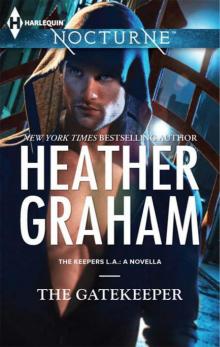 The Gatekeeper
The Gatekeeper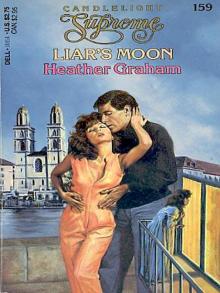 Liar's Moon
Liar's Moon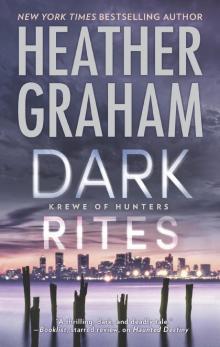 Dark Rites--A Paranormal Romance Novel
Dark Rites--A Paranormal Romance Novel A Season for Love
A Season for Love Krewe of Hunters, Volume 6: Haunted Destiny ; Deadly Fate ; Darkest Journey
Krewe of Hunters, Volume 6: Haunted Destiny ; Deadly Fate ; Darkest Journey Keeper of the Dawn (The Keepers: L.A.)
Keeper of the Dawn (The Keepers: L.A.)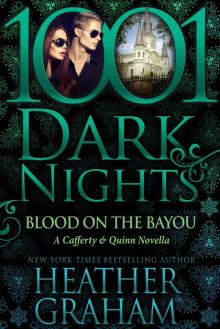 Blood on the Bayou: A Cafferty & Quinn Novella
Blood on the Bayou: A Cafferty & Quinn Novella Double Entendre
Double Entendre A Perfect Obsession--A Novel of Romantic Suspense
A Perfect Obsession--A Novel of Romantic Suspense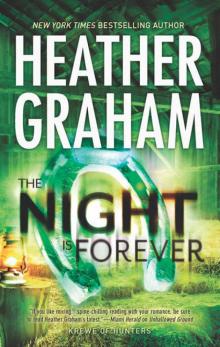 The Night Is Forever koh-11
The Night Is Forever koh-11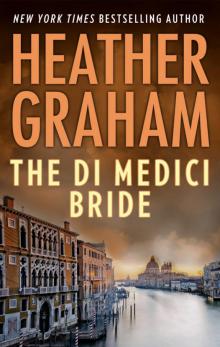 The Di Medici Bride
The Di Medici Bride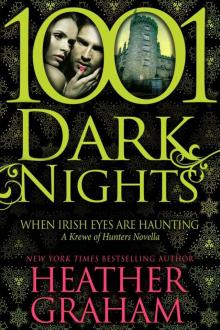 When Irish Eyes Are Haunting: A Krewe of Hunters Novella
When Irish Eyes Are Haunting: A Krewe of Hunters Novella The Keepers: Christmas in Salem: Do You Fear What I Fear?The Fright Before ChristmasUnholy NightStalking in a Winter Wonderland (Harlequin Nocturne)
The Keepers: Christmas in Salem: Do You Fear What I Fear?The Fright Before ChristmasUnholy NightStalking in a Winter Wonderland (Harlequin Nocturne) Never Fear
Never Fear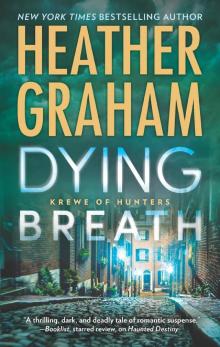 Dying Breath--A Heart-Stopping Novel of Paranormal Romantic Suspense
Dying Breath--A Heart-Stopping Novel of Paranormal Romantic Suspense If Looks Could Kill
If Looks Could Kill This Rough Magic
This Rough Magic Heather Graham's Christmas Treasures
Heather Graham's Christmas Treasures Hatfield and McCoy
Hatfield and McCoy The Trouble with Andrew
The Trouble with Andrew Never Fear - The Tarot: Do You Really Want To Know?
Never Fear - The Tarot: Do You Really Want To Know?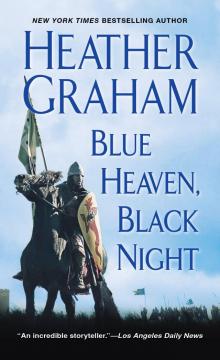 Blue Heaven, Black Night
Blue Heaven, Black Night Forbidden Fire
Forbidden Fire Come the Morning
Come the Morning Dark Stranger sb-4
Dark Stranger sb-4 Lie Down in Roses
Lie Down in Roses Red Midnight
Red Midnight Krewe of Hunters Series, Volume 5
Krewe of Hunters Series, Volume 5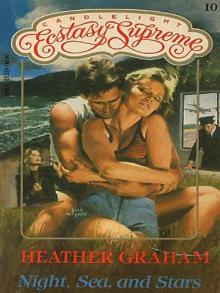 Night, Sea, And Stars
Night, Sea, And Stars Snowfire
Snowfire Quiet Walks the Tiger
Quiet Walks the Tiger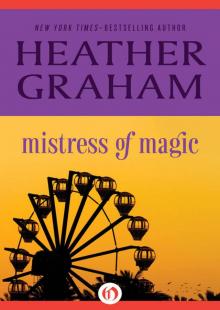 Mistress of Magic
Mistress of Magic For All of Her Life
For All of Her Life Runaway
Runaway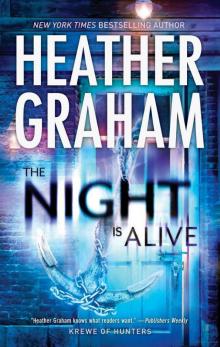 The Night Is Alive koh-10
The Night Is Alive koh-10 The Evil Inside (Krewe of Hunters)
The Evil Inside (Krewe of Hunters)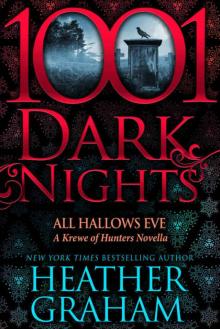 All Hallows Eve: A Krewe of Hunters Novella (1001 Dark Nights)
All Hallows Eve: A Krewe of Hunters Novella (1001 Dark Nights) Tomorrow the Glory
Tomorrow the Glory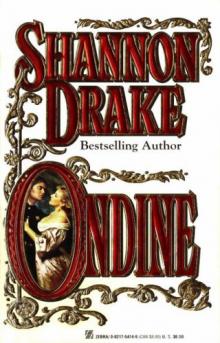 Ondine
Ondine Angel of Mercy & Standoff at Mustang Ridge
Angel of Mercy & Standoff at Mustang Ridge Bride of the Tiger
Bride of the Tiger When Next We Love
When Next We Love Heather Graham Krewe of Hunters Series, Volume 4
Heather Graham Krewe of Hunters Series, Volume 4 A Season of Miracles
A Season of Miracles Realm of Shadows (Vampire Alliance)
Realm of Shadows (Vampire Alliance) When We Touch
When We Touch Serena's Magic
Serena's Magic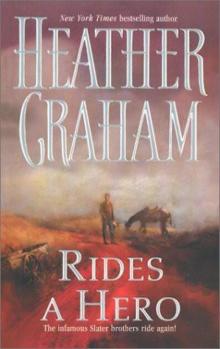 Rides a Hero sb-2
Rides a Hero sb-2 All in the Family
All in the Family Handful of Dreams
Handful of Dreams A Stranger in the Hamptons
A Stranger in the Hamptons Krewe of Hunters, Volume 2: The Unseen ; The Unholy ; The Unspoken ; The Uninvited
Krewe of Hunters, Volume 2: The Unseen ; The Unholy ; The Unspoken ; The Uninvited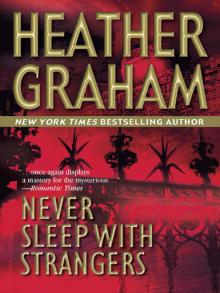 Never Sleep With Strangers
Never Sleep With Strangers Eden's Spell
Eden's Spell A Magical Christmas
A Magical Christmas Forever My Love
Forever My Love King of the Castle
King of the Castle Night Moves (60th Anniversary)
Night Moves (60th Anniversary) The Island
The Island Borrowed Angel
Borrowed Angel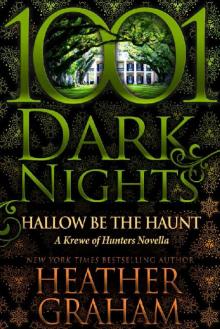 Hallow Be the Haunt: A Krewe of Hunters Novella
Hallow Be the Haunt: A Krewe of Hunters Novella Why I Love New Orleans
Why I Love New Orleans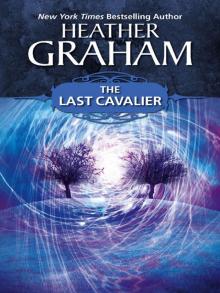 The Last Cavalier
The Last Cavalier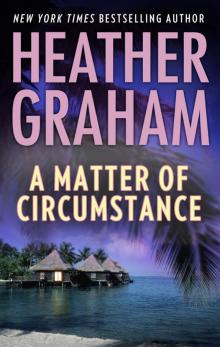 A Matter of Circumstance
A Matter of Circumstance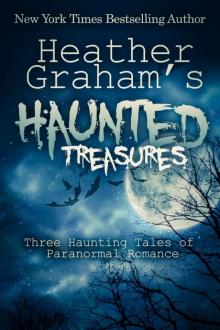 Heather Graham's Haunted Treasures
Heather Graham's Haunted Treasures Tempestuous Eden
Tempestuous Eden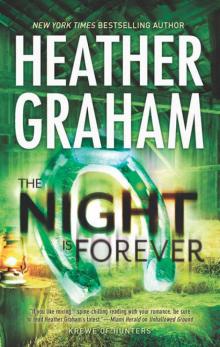 Krewe 11 - The Night Is Forever
Krewe 11 - The Night Is Forever